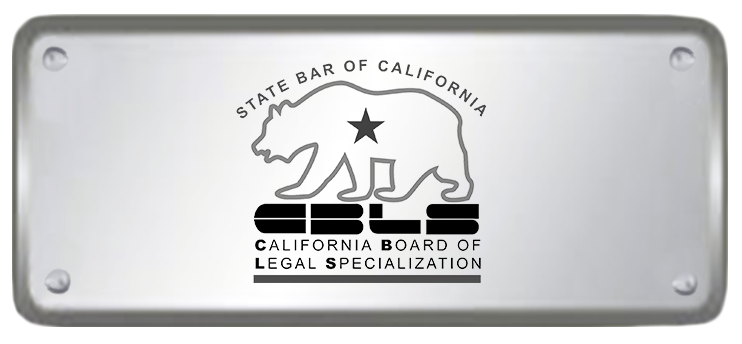CHILD SUPPORT IN CALIFORNIA
The California Family Code obligates both parents to support their children financially until emancipation and possibly beyond. To determine the appropriate amount of child support that a parent must pay in California, the state utilizes a presumptively correct uniform guideline.
How is Income Available for Child Support Determined in California?
The first step in the guideline child support process is to determine the parents’ income available for child support. While the most common form of income is wages and salary, the court may consider multiple sources of income, including the imputation of income when appropriate and in the children’s best interest. For this reason, parents subject to a child support order must file and serve updated Income and Expense Declarations and attach all requested information. This provides the court with an understanding of current and average income from all sources, tax filing status, and monthly expenses such as health insurance.
Our experienced attorneys at Antonyan Miranda will review all relevant financial documents, including tax returns, bank statements, investment statements, and other information needed to ascertain income available for child support. We often consult with financial experts, such as our in-house forensic accountant, to help us piece together the full financial picture.
Calculating Child Support
The two primary considerations when calculating child support in California are the parties’ respective incomes and the time each parent spends with the child (also called parenting timeshare). There are many variables, but generally, the parent with a higher income will pay more in child support, and the parent who spends the majority of time with the child will usually receive more child support.
Additionally, the guideline child support formula considers other factors, such as:
- Taxable versus nontaxable income
- Federal tax exemptions
- 401(k) contributions
- Child support paid for children from other relationships
- Health insurance cost
- Required union dues
- Hardship deductions
The Antonyan Miranda Divorce CalculatorTM (Link to the calculator!) provides a good starting point to estimate child support amounts based on various input factors.
Additional Child Support
While guideline child support determines the monthly amount of child support that is to be paid by the payor parent based upon the income that is recurring and not significantly variable, it is not uncommon for a parent to earn other variable income that may or may not be recurrent, such as bonus compensation or proceeds received from the sale of Restricted Stock Units (RSUs). In these cases, the court can make an order known as Ostler-Smith which will provide a percentage of that variable income as child support in addition to the base child support amount.
There are also child support “add-ons” provided in the California Family Code, which compel parents to pay a percentage of any unreimbursed health expenses and childcare. The ordered percentage is typically 50-50, but the court has the discretion to order a different percentage when appropriate.
Modifying Existing Child Support Orders
Requests to modify existing child support orders are common but must be premised upon some significant change since the existing orders were made. Common examples include a significant change in a parent’s income or a change in parenting timeshare. Additionally, if a parent is not working to their full earning potential after a certain time, this may constitute a significant change in circumstances sufficient to warrant a modification based upon the imputation of income to that parent.
Enforcing Child Support
Unfortunately, it is far too common that child support goes unpaid in full or in part. For this reason, an Income Withholding Order is available to intercept and withhold child support directly from the payor-parent’s employer. However, this may not satisfy the child support order in full, or in the case of a self-employed parent or a parent who earns income outside of the United States, a withholding order may prove ineffective.
If child support is not paid as ordered, remedial enforcement, including contempt proceedings, is available. Contempt is essentially the private prosecution for a violation of a court order. If one is found guilty of contempt, one can be sentenced to jail and also obligated to pay the reasonable attorney fees incurred in prosecuting the contempt. Unpaid child support will generate judicial interest of 10% per year, and the court may augment the interest rate to a maximum of 72% per year.
As with any decision involving finances, you should contact a professional to provide specific advice tailored to your particular facts and circumstances. Our family law attorneys at Antonyan Miranda can provide valuable guidance and representation regarding child support in California. We will fight to ensure your child’s needs are met, and your legal rights are protected. Call us at 619-696-1100 to speak with one of our Concierge attorneys, or visit us at www.expertdivorcelaw.com for more information.
FOLLOW US!
CHILD SUPPORT IN CALIFORNIA
The California Family Code obligates both parents to support their children financially until emancipation and possibly beyond. To determine the appropriate amount of child support that a parent must pay in California, the state utilizes a presumptively correct uniform guideline.
How is Income Available for Child Support Determined in California?
The first step in the guideline child support process is to determine the parents’ income available for child support. While the most common form of income is wages and salary, the court may consider multiple sources of income, including the imputation of income when appropriate and in the children’s best interest. For this reason, parents subject to a child support order must file and serve updated Income and Expense Declarations and attach all requested information. This provides the court with an understanding of current and average income from all sources, tax filing status, and monthly expenses such as health insurance.
Our experienced attorneys at Antonyan Miranda will review all relevant financial documents, including tax returns, bank statements, investment statements, and other information needed to ascertain income available for child support. We often consult with financial experts, such as our in-house forensic accountant, to help us piece together the full financial picture.
Calculating Child Support
The two primary considerations when calculating child support in California are the parties’ respective incomes and the time each parent spends with the child (also called parenting timeshare). There are many variables, but generally, the parent with a higher income will pay more in child support, and the parent who spends the majority of time with the child will usually receive more child support.
Additionally, the guideline child support formula considers other factors, such as:
- Taxable versus nontaxable income
- Federal tax exemptions
- 401(k) contributions
- Child support paid for children from other relationships
- Health insurance cost
- Required union dues
- Hardship deductions
The Antonyan Miranda Divorce CalculatorTM (Link to the calculator!) provides a good starting point to estimate child support amounts based on various input factors.
Additional Child Support
While guideline child support determines the monthly amount of child support that is to be paid by the payor parent based upon the income that is recurring and not significantly variable, it is not uncommon for a parent to earn other variable income that may or may not be recurrent, such as bonus compensation or proceeds received from the sale of Restricted Stock Units (RSUs). In these cases, the court can make an order known as Ostler-Smith which will provide a percentage of that variable income as child support in addition to the base child support amount.
There are also child support “add-ons” provided in the California Family Code, which compel parents to pay a percentage of any unreimbursed health expenses and childcare. The ordered percentage is typically 50-50, but the court has the discretion to order a different percentage when appropriate.
Modifying Existing Child Support Orders
Requests to modify existing child support orders are common but must be premised upon some significant change since the existing orders were made. Common examples include a significant change in a parent’s income or a change in parenting timeshare. Additionally, if a parent is not working to their full earning potential after a certain time, this may constitute a significant change in circumstances sufficient to warrant a modification based upon the imputation of income to that parent.
Enforcing Child Support
Unfortunately, it is far too common that child support goes unpaid in full or in part. For this reason, an Income Withholding Order is available to intercept and withhold child support directly from the payor-parent’s employer. However, this may not satisfy the child support order in full, or in the case of a self-employed parent or a parent who earns income outside of the United States, a withholding order may prove ineffective.
If child support is not paid as ordered, remedial enforcement, including contempt proceedings, is available. Contempt is essentially the private prosecution for a violation of a court order. If one is found guilty of contempt, one can be sentenced to jail and also obligated to pay the reasonable attorney fees incurred in prosecuting the contempt. Unpaid child support will generate judicial interest of 10% per year, and the court may augment the interest rate to a maximum of 72% per year.
As with any decision involving finances, you should contact a professional to provide specific advice tailored to your particular facts and circumstances. Our family law attorneys at Antonyan Miranda can provide valuable guidance and representation regarding child support in California. We will fight to ensure your child’s needs are met, and your legal rights are protected. Call us at 619-696-1100 to speak with one of our Concierge attorneys, or visit us at www.expertdivorcelaw.com for more information.





















